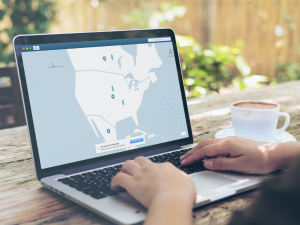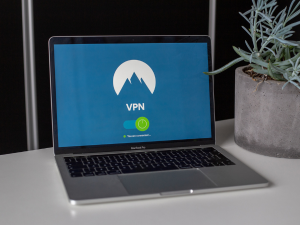 Attention to all business! Cyber threats specifically targeting Cisco VPNs have managed to penetrate secure business systems and put their sensitive data and financial assets at risk. The threat is heightened by the ransomware used by Akira members.
Attention to all business! Cyber threats specifically targeting Cisco VPNs have managed to penetrate secure business systems and put their sensitive data and financial assets at risk. The threat is heightened by the ransomware used by Akira members.
What is Akira?
Akira, a cyber-gang, uses different ransomware types to target different victims. Cisco VPNs are now victims of attacks that were first detected in May, 2023. The attacks started with Akira breaking into corporate networks without being detected.
Data theft accelerated the attacks. Ransomware attacks eventually target corporations that have been victims of ransomware. This puts their data, devices and networks at risk. Some of the industries that are targeted include:
- Real estate
- Financial Services
- Education
These industries are vital to the modern civilization. Ransomware spreads through their systems and encrypts data across different devices. When users try to access data, they are faced with locked devices or folders that they cannot control.
The ransomware group asks victims to pay a fee to unlock their devices or their data. The data can be used for malicious purposes such as damaging the reputation of a business.
Cyber attacks on Cisco VPNs
Cybersecurity experts are now racing against ransomware that is rapidly evolving. Where did it all begin? Hackers are targeting Cisco VPNs to cause cyber threats.
Vulnerable Remote Work Networks
Cisco VPNs, as well as similar tools, are frequently used by remote and hybrid workers. Akira developers gather information from the dark web to hack into someone's account or buy login details. The ransomware then accesses the personal data of the victim via their target software.
Users download the tools without thinking about security because they trust them. Akira will find a weakness to exploit and gain access into the victim's computer.
Ransomware: How to Contract it
Akira's ransomware can be hidden as an innocent email attachment or by using file-hosting services. When the victim opens an infected document, the Akira virus will infect their device. The Akira ransomware encrypts data, preventing the victim from gaining access to it.
The Akira group gives two options. The cyber gang will either sell the sensitive data of the victim on the dark net or charge the victim.
How to Protect Your Devices
Cisco VPNs are not protected by cyber security experts. Follow these precautions to keep your information and devices safe:
- Multi-factor authentication is recommended for all devices and digital accounts. Cybersecurity experts say Akira exploits those with only one authentication factor.
- Avoid vector software whenever possible. Akira hides its ransomware in otherwise trusted programs.
- Download files and software only from official, secure websites. Ransomware is spread through illegal downloads, pop-ups and insecure websites.
VPN Security Threats - Stay Safe
 A secure path through the digital world is offered through Virtual private networks (VPNs). VPNs create a tunnel of encrypted information. This encryption protects information like which websites you visit and what apps you use. Recent reports show that some VPNs could be made safer.
A secure path through the digital world is offered through Virtual private networks (VPNs). VPNs create a tunnel of encrypted information. This encryption protects information like which websites you visit and what apps you use. Recent reports show that some VPNs could be made safer.
Unsafe VPNs can be dangerous
Zscaler conducted a study and found that 88% (of businesses) are concerned about VPN issues. Phishing and ransomware are the main concerns. Nearly half of the businesses were targeted by attacks that exploited a vulnerability in their VPN services. These flaws are usually related to outdated protocols or data leaks.
Impact of VPN vulnerabilities
What does it mean for your company? You are at greater risk from cyber-threats. One in five companies had an attack last year and one third experienced a ransomware through VPNs. Third-party vendors are also at risk of supply chain attacks.
How Zero-Trust Architecture Can Help
Businesses are increasingly finding zero-trust architecture to be a practical solution. This is a system in which nothing and nobody is trusted by default. Even on a secured network, each user and device must prove their identity. Zero-trust requires strong identity checks and device compliance checks before allowing access. It also involves giving minimal access rights.
How to choose a Zero-Trust VPN Provider
A good VPN service has many advantages. A good VPN service can provide many benefits. It can prevent hackers from gaining access to your data, give you access to important information that may be blocked and stop social media platforms from misusing your data.
Is using a VPN safe? If you do your research and choose the best service, then it's usually safe. When choosing a partner with zero trust, be careful. Make sure that you get what is promised.
Here are some tips on how to make your VPN more secure:
- Update your VPN to avoid outdated protocols.
- Select a reliable VPN service to prevent data leaks.
- Use a zero trust architecture in your company.
- Ask the right questions prior to choosing a partner with zero trust.
Keeping Your Business Safe Online
VPNs play a crucial role in protecting your online privacy. It's important to know the risks of VPNs and take steps to protect your business. Your business can be safer from cyber-threats by using a zero-trust architecture, and a VPN service that is trusted. The online world is changing, and so must our protection methods. It's worth it to protect your business.
Contact Integrated Technology Systems to be secure in today's business world. We have the tools to keep you safe and to train your employees on the right security protocols.
Integrated Technology Systems
6 East 45th Street, Suite 400
New York, NY 10017
212-750-5420
https://www.itsnyc.com



